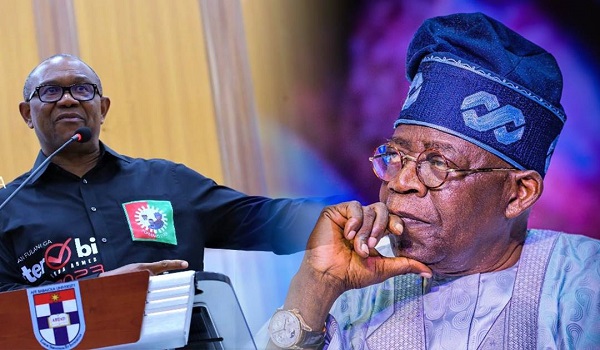The Labour Party’s 2023 presidential candidate, Peter Obi, has voiced concerns over Nigeria’s escalating debt levels and deepening poverty.
In a statement posted on his X account on Tuesday, the former Anambra State governor warned that the country risks severe economic and social consequences if it continues on its current borrowing trajectory.
Obi highlighted that on 22 July, the Senate approved a new wave of external loans amounting to $21 billion, €2.2 billion, and ¥15 billion for the 2025–2026 fiscal period.
READ ALSO: Obi accuses Tinubu’s administration of misleading Nigerians with false statistics
Additionally, he said the Senate sanctioned the issuance of a ₦750.98 billion domestic bond and accepted a €65 million grant.
He pointed out that the approval comes amid mounting public anxiety over Nigeria’s ballooning debt profile.
According to him, the country’s total public debt stood at ₦149.39 trillion in the first quarter of 2025.
With the latest loan approvals estimated at ₦37.2 trillion, Obi warned that the debt stock could soar to approximately ₦187 trillion, potentially exceeding ₦200 trillion before the end of the year, according to some analysts.
He noted, “It is time to stop this fiscal indiscipline. We must build a New Nigeria, where leadership is responsible, development is people-centred, and every kobo borrowed or spent delivers a measurable impact to achieve sustainable and inclusive development and growth.”
Obi highlighted that, before the recent GDP rebasing, Nigeria’s economy was valued at roughly ₦269.2 trillion (around $180 billion), implying that the government had borrowed nearly 70% of the country’s total economic output.
He explained that although the rebasing exercise raised the GDP to ₦372.8 trillion (approximately $243.7 billion), the debt-to-GDP ratio still exceeds 50%—the highest in Nigeria’s history.
Obi stressed the urgent need to return to a culture of disciplined and prudent economic management.
He advocated reducing the cost of governance, plugging financial leakages, investing in human capital, and fostering a productive economy.
He warned that Nigeria cannot sustain a pattern of reckless borrowing while poverty worsens and public confidence declines.
While acknowledging that borrowing is not inherently negative, he emphasised that it must be sustainable and channelled into productive ventures with tangible and measurable outcomes.
“Unfortunately, this current pattern of borrowing without accountability, without transparency, and without transformational impact is simply mortgaging the future of our children.
“The government should consider the inter-generational consequences of their unsustainable borrowings and show at least a minimum consideration and interest in the future of young and unborn Nigerians.”
He noted that despite the mounting debt, there is little or no visible impact in key sectors such as education, healthcare, electricity generation, security, and poverty alleviation.
“We still rank low in all major human development indicators. While education is underfunded and standard in continuous decline, healthcare remains inaccessible to millions of Nigerians particularly the poor.
“Security of lives and property has deteriorated with over 10,217 people killed and 672 villages sacked between May 29th 2023, and May 29th 2025, even when security spending has significantly increased from N2.98 trillion in 2023 to N4.91 trillion in 2025. Infrastructure decay persists across the country, with about 135,000km of our 195,000km of roads remaining unpaved, largely unmotorable, and unusable.
“It is the same depressing situation in almost all sectors of the economy, with the power sector an unquestionable example, with less than 5,000 MW supplied for over 200 million Nigerians.
“Today, over two years after the present government took over and with all the humongous borrowing, we are still confronted with negative reports of worsening poverty with about 133 million (63%) Nigerians classified as multi-dimensionally poor, increasing unemployment and disheartening news like 652 children dead as the malnutrition crisis worsens in Northern Nigeria.
READ ALSO: Atiku: Threat to Obi signals danger for all opposition voices
“Médecins Sans Frontières (MSF), also known as Doctors Without Borders, has just sounded the alarm over an escalating malnutrition crisis in Northern Nigeria, with Katsina State emerging as one of the worst-hit areas.
“This is a country blessed with enormous resources, yet nobody should go to bed hungry. Still, a persistent deficiency in leadership has thrown the majority of our citizens into increasing multi-dimensional poverty.”



